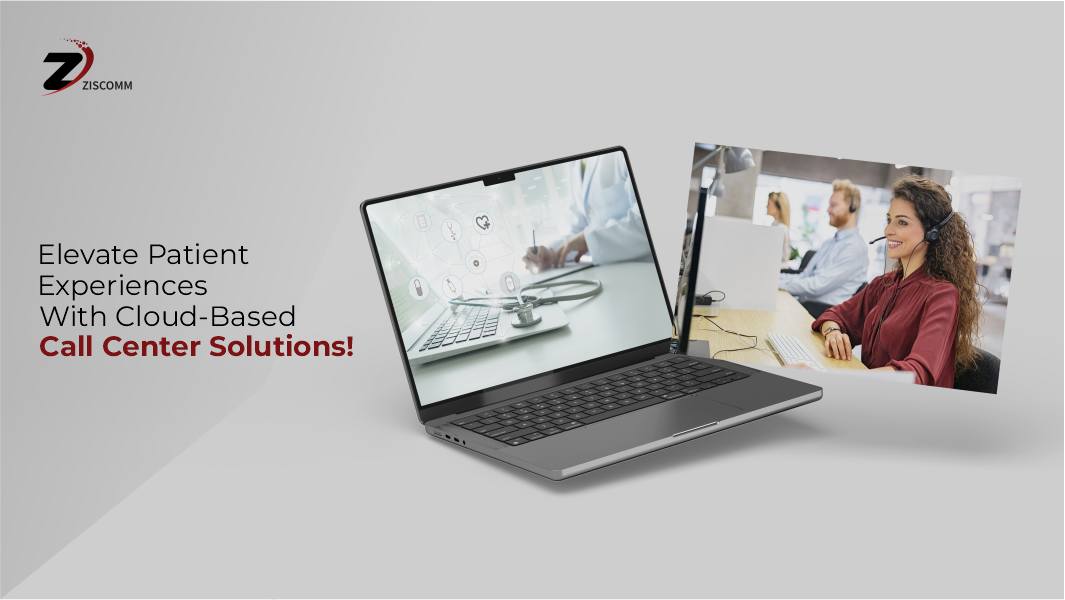In the healthcare industry, patient satisfaction is paramount, influencing both the reputation of healthcare providers and patient retention, as well as overall health outcomes. One innovative approach to enhancing patient satisfaction is the adoption of cloud-based call center solutions. These solutions revolutionize patient interaction by improving communication and accessibility, enabling healthcare providers to offer timely and efficient support. With features such as automated call distribution, real-time data analytics, and integrated patient records, cloud-based call centers streamline administrative processes and reduce wait times, ensuring patients receive prompt and personalized assistance.
Enhanced data security measures inherent in cloud technologies also protect sensitive patient information within care management software, fostering trust and compliance with regulatory standards like HIPAA. Moreover, the scalability of cloud solutions allows healthcare providers to adjust resources based on demand, ensuring consistent service quality during peak times. By facilitating seamless coordination among healthcare teams and providing patients with multiple channels of communication, such as voice, chat, and email, cloud-based call centers enhance the overall healthcare experience. This not only boosts patient satisfaction but also contributes to better health outcomes by ensuring patients have continuous, reliable access to the support and information they need. Thus, the integration of cloud-based call center solutions is transforming healthcare delivery, making it more efficient, secure, and patient-centric.
The Importance of Patient Satisfaction
Patient satisfaction is a critical metric for healthcare providers. It encompasses various aspects of the patient experience, including:
1. Access to Care
The ease with which patients can schedule appointments, receive information, and get in touch with their healthcare providers.
2. Quality of Care
Patients’ perceptions of the care they receive, including the professionalism, empathy, and competence of healthcare professionals.
3. Administrative Efficiency
The smoothness of administrative processes, such as billing, record-keeping, and follow-up communications.
High patient satisfaction leads to better patient outcomes, higher retention rates, and a more robust reputation for healthcare providers. Conversely, poor patient satisfaction can result in negative reviews, decreased patient loyalty, and potential legal issues.
Challenges in Traditional Call Centers
Traditional call centers in healthcare often struggle with several challenges that can negatively impact patient satisfaction:
1. Limited Accessibility
Traditional call centers may have limited hours of operation, leading to frustrations for patients who need assistance outside of these hours.
2. High Call Volumes
High call volumes can lead to long wait times, dropped calls, and overwhelmed staff, reducing the quality of service.
3. Lack of Integration
Traditional call centers may not be fully integrated with electronic health records (EHR) and other healthcare systems, leading to fragmented information and inefficiencies.
4. Scalability Issues
As healthcare practices grow, traditional call centers may struggle to scale, resulting in inconsistent service levels.
The Rise of Cloud-Based Call Center Solutions
Cloud-based call center solutions offer a modern alternative to traditional call centers. These solutions leverage cloud technology to provide a range of features that can enhance patient satisfaction:
1. 24/7 Accessibility
Cloud-based call centers can operate around the clock, ensuring that patients have access to support at any time.
2. Scalability
Cloud solutions can easily scale to accommodate growing healthcare practices, ensuring consistent service levels.
3. Integration with EHR and Other Systems
Cloud-based solutions can integrate seamlessly with EHR systems, allowing call center agents to access patient information quickly and provide more personalized service.
4. Advanced Features
Features such as automated call routing, chatbots, and AI-driven analytics can improve efficiency and the overall patient experience.
Enhancing Patient Satisfaction with Cloud-Based Solutions
1. Improved Access to Care
One of the most significant benefits of cloud-based call center solutions is improved access to care. Patients can contact their healthcare providers at any time, whether it’s to schedule an appointment, ask a question, or seek medical advice. This 24/7 accessibility ensures that patients receive timely support, which can be crucial in emergencies or for those with busy schedules.
Cloud-based solutions can also offer multiple communication channels, including phone, email, chat, and SMS. This multi-channel approach caters to patients’ preferences, making it easier for them to get in touch with their healthcare providers.
2. Enhanced Communication and Personalization
Cloud-based call centers can integrate with EHR systems, providing agents with access to patients’ medical histories and preferences. This integration enables call center agents to offer personalized support, addressing patients by name and referencing their medical records during interactions. Personalized communication fosters a sense of trust and care, significantly enhancing patient satisfaction.
Moreover, advanced features such as automated call routing and intelligent virtual assistants can ensure that patients are directed to the appropriate department or personnel quickly. This reduces wait times and ensures that patients receive the information or support they need without unnecessary delays.
3. Efficient Administrative Processes
Administrative efficiency is a critical component of patient satisfaction. Cloud-based call center solutions can streamline various administrative processes, including appointment scheduling, billing inquiries, and follow-up communications. Automated systems can handle routine tasks, freeing up staff to focus on more complex issues and improving overall efficiency.
For example, automated appointment reminders can reduce no-show rates and help patients stay on top of their healthcare needs. Similarly, automated billing inquiries can provide patients with quick and accurate information about their accounts, reducing frustration and confusion.
4. Data-Driven Insights and Continuous Improvement
Cloud-based call center solutions often come with advanced analytics capabilities. These tools can provide healthcare providers with valuable insights into patient interactions, call volumes, common issues, and overall performance. By analyzing this data, healthcare providers can identify trends, pinpoint areas for improvement, and implement targeted strategies to enhance patient satisfaction.
For instance, if data reveals that patients frequently call about appointment availability, healthcare providers can take steps to improve their online scheduling systems or increase appointment slots. Continuous monitoring and data-driven decision-making enable healthcare providers to adapt to patients’ needs proactively.
5. Scalability and Flexibility
As healthcare practices grow, cloud-based call center solutions can easily scale to meet increasing demand. Unlike traditional call centers, which may require significant investments in hardware and infrastructure, cloud solutions can expand with minimal disruption. This scalability ensures that patients continue to receive high-quality service, even as the practice grows.
Additionally, cloud-based solutions offer flexibility in terms of deployment and updates. Healthcare providers can quickly implement new features or updates without extensive downtime, ensuring that their call center remains at the forefront of technological advancements.
Case Studies: Real-World Examples
Case Study 1: Improving Patient Satisfaction at a Multi-Specialty Clinic
A multi-specialty clinic implemented a cloud-based call center solution to address challenges related to high call volumes and long wait times. By leveraging automated call routing and integration with their EHR system, the clinic was able to reduce average wait times by 50%. Patients reported higher satisfaction levels, citing faster response times and more personalized interactions as key factors.
Case Study 2: Enhancing Communication in a Rural Healthcare Network
A rural healthcare network faced challenges in providing timely support to patients spread across a large geographic area. By adopting a cloud-based call center solution with 24/7 availability and multiple communication channels, the network improved accessibility and patient satisfaction. Patients appreciated the ability to contact their healthcare providers at any time and through their preferred communication channels.
Future Trends in Cloud-Based Call Center Solutions
The future of cloud-based call center solutions in healthcare looks promising, with several trends poised to further enhance patient satisfaction:
1. Artificial Intelligence (AI) and Machine Learning (ML)
AI and ML can power advanced features such as predictive analytics, chatbots, and sentiment analysis. These technologies can anticipate patient needs, provide real-time support, and continuously improve the patient experience.
2. Omni-Channel Communication
The integration of various communication channels into a unified platform will become more seamless, allowing patients to switch between channels without losing context. This will enhance the convenience and flexibility of patient interactions.
3. Telehealth Integration
Cloud-based call centers will increasingly integrate with telehealth platforms, providing patients with a comprehensive and cohesive healthcare experience. This integration will enable call center agents to assist with telehealth appointments, troubleshoot technical issues, and provide follow-up support.
4. Security and Compliance
As data privacy and security concerns grow, cloud-based call center solutions will continue to evolve to meet stringent regulatory requirements. Enhanced security measures and compliance features will ensure that patient data remains protected.
Patient Satisfaction with Cloud-Based Call Center: Final Thoughts
Improving patient satisfaction is a continuous endeavor that requires innovative solutions and a patient-centric approach. Cloud-based call center solutions offer a powerful tool for healthcare providers to enhance communication, streamline administrative processes, and provide personalized support. By leveraging the benefits of cloud technology, healthcare providers can create a more responsive, efficient, and satisfying experience for their patients. As these solutions continue to evolve, they will play an increasingly vital role in shaping the future of healthcare delivery and patient satisfaction.





